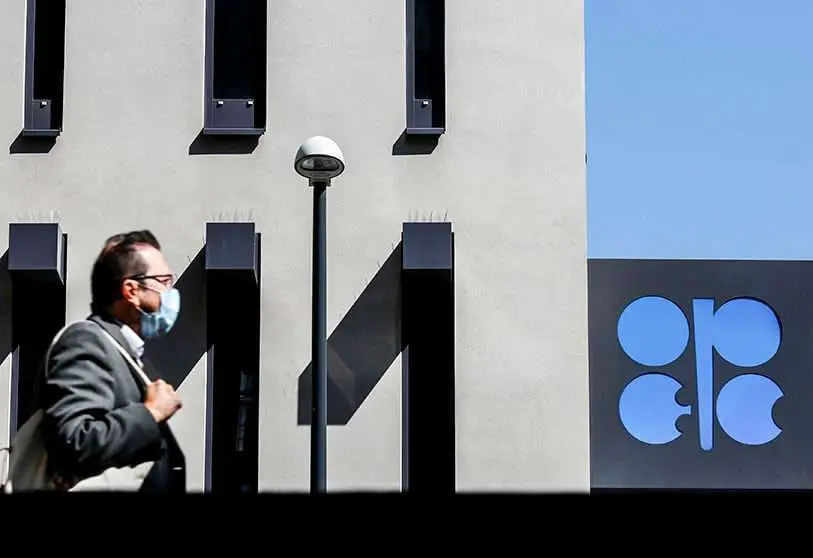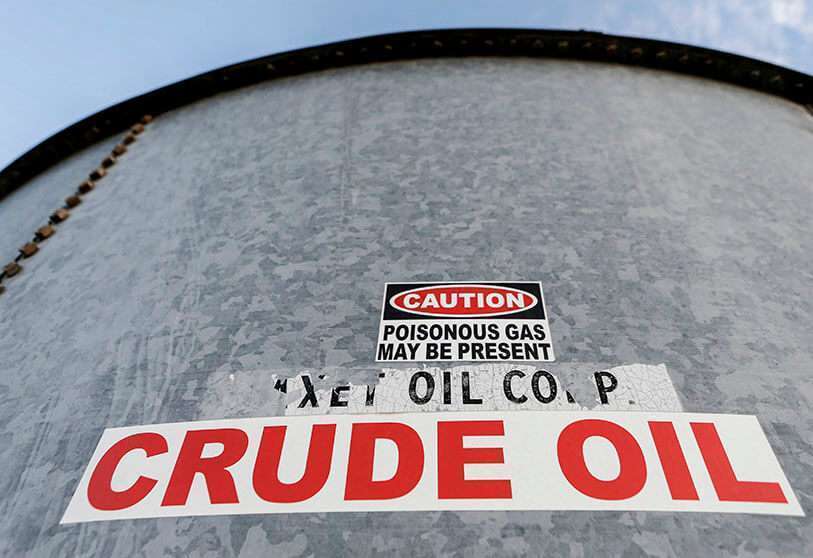Oil powers make a giant cut to shore up prices

OPEC, Russia, Mexico and other oil-producing countries are launching a giant cut in the supply of crude oil, starting Friday, with the aim of raising the "petroprices", which plummeted to historic lows in April due to the lack of demand for black gold in the times of the coronavirus.
The hope of the 13 members of the Organization of Petroleum Exporting Countries (OPEC) and its 10 independent allies is that the reduction of the joint pumping by 9.7 million barrels per day (mbd) -nearly 10% of world production- will rebalance a market overflowing with supplies that nobody wants and that threaten to exceed the storage capacity.
According to the agreement sealed on 12th April by OPEC+ ministers (OPEC and allies) in a teleconference, extractions will remain limited for two years, although they will rise moderately from July, in line with a gradual increase in black gold consumption forecast for the second half of the year.
In this way, the reduction of 9.7 mbd will be in force until 30 June, but will be 7.7 mbd during the rest of the year and 5.8 mbd between 1 January 2021 and 30 April 2022. These cuts can be reviewed, if necessary, at the OPEC+ ministerial meeting convened for 9 and 10 June.

Excluded from the commitment have been OPEC partners Venezuela, Iran and Libya, because they have been suffering involuntary drops in the activities of their oil industries for months now, hit by internal conflicts, crises and sanctions.
Mexico also made an exception by cutting only 100,000 of the 400,000 bd it would have been entitled to, after an unusual intervention by US President Donald Trump, promising that his country would take over the reduction of another 250,000 on behalf of its southern neighbour. However, four days after the agreement was sealed, Mexico announced that it would only maintain the cut in the first phase. It will stop doing so from July.
Crude prices closed April amid extreme volatility, especially in the U.S., where Texas intermediate oil (WTI) first went into negative territory on the 20th of that month, when traders had to pay in exchange for the removal of barrels of expiring contracts, as they had nowhere to store them. WTI ended that day at -$37.63, with a drop of more than 300% in a single day.
At the end of Thursday's session, it was trading at $18.84, with a 25.1% bounce from the previous day, while the Brent was also up 11.85% the day before, to $25.30/barrel.
According to the consulting firm CMarkits, the positive trend began towards the end of last week, driven by "the expiration of contracts for delivery in May and the movement towards contracts in June", and the expectation of implementation of the OPEC+ pact.
Also helping were announced measures to gradually revive the economy in the United States and Europe after their near-total standstill to curb the COVID-19 pandemic.
Other producers, such as Norway, also reported limitations on their pumping, and the International Energy Agency (IEA) said it expects "chaotic" oil field closures, all of which will deepen the supply crunch.
The current "petroprices", although they have recovered some of the ground lost a few weeks ago, remain far from the more than 60 dollars at the beginning of the year, at their lowest level since the beginning of the century, below the cost of production of the most sophisticated extractions.

In the midst of great uncertainty, the hope for countries highly dependent on their oil revenues is that a second wave of coronavirus infections will not occur globally and that the crisis will be temporary.
OPEC estimates that the price per barrel could then be around 40 dollars in the second half of the year, according to the organization's current president and Algerian energy minister, Mohamed Arkab. "The world economy will not remain paralyzed for long," Arkab predicted last weekend in an interview with Algerian national radio. He agreed with his Russian counterpart, Alexander Novak, who in a statement urged him not to dramatize the situation.
However, the Paris-based IEA again warned on Thursday about the difficulty of predicting the impact of the current crisis, which is incomparable to previous ones. Restrictions on population movement "have caused unprecedented declines in demand, whose speed and magnitude far exceed the normal flexibility of the supply market," the agency said, after estimating that oil consumption will fall this year by 9%, to its lowest level since 2012.








